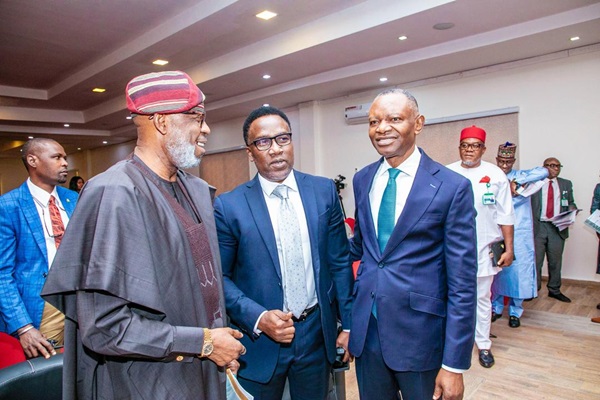
The director-general of the Nigerian Meteorological Agency (NiMet), Prof. Charles Anosike has touted the importance of meteorological sciences in enhancing operational safety within the mining sector.
Anosike, who was making a presentation titled “Intersection Between Climate Change Concerns and the Mining Industry – The Role Of NiMet,” at the ‘Solid Minerals Conference’ organised by Business Day newspaper in Abuja, highlighted how meteorology could significantly contribute to improving safety standards and operational efficiency in mining, a sector inherently vulnerable to weather-related challenges.
“Mines and all activities related to mining are among the most weather-vulnerable industries globally, often situated in geographically and climatically challenging locations,” stated Anosike during the conference. He underscored the impact of weather on mining operations, posing risks that could compromise worker safety, leading to delays and disruptions in productivity.
Acknowledging the changing climate patterns, Anosike pointed out that extreme weather events, on the rise due to climate change, present challenges to mining safety, productivity and profitability. He commended the federal government’s proactive measures in addressing these challenges, emphasising its commitment to action.
Quoting the Minister of Solid Mineral Development, Dr. Dele Alake, Anosike highlighted the government’s diversification efforts from hydrocarbons, aiming to make the minerals sector a significant contributor to Nigeria’s gross domestic product (GDP) while mitigating the impact of climate change.
“Real-time weather forecasts, warnings, and information on climatic conditions are essential for ensuring the safety of operations, especially in locations where weather conditions significantly impact safety,” Anosike asserted. Accurate meteorological data becomes a critical tool in assessing and mitigating risks associated with extreme weather events such as storms and floods, minimizing potential damages to infrastructure and ensuring personnel safety.
Addressing the impact of climate change in Nigeria, Anosike identified notable effects, including uncertainties in the onset of the rainy season, shifts in rainfall patterns, sea level rise and extreme weather events. Despite these challenges, he emphasised that with adequate weather and climate information, there is an observable increase in climate actions and resilience.
Anosike further highlighted NiMet’s new Establishment Act of 2022, empowering the agency to regulate all meteorological aspects in Nigeria. This legislation positions NiMet to commercialise meteorological data by engaging in partnerships with the private sector. Anosike expressed NiMet’s eagerness to collaborate with the private sector in providing customised weather and climate data to enhance effective planning and optimisation of mining and other activities.
He concluded by informing the audience about the public presentation of NiMet’s Seasonal Climate Prediction (SCP) scheduled for February 20, 2024, at the NAF Conference Centre and Suites in Abuja. The SCP serves as an early warning tool, offering crucial information for various sectors of the Nigerian economy to respond to climate extremities over the next year.

